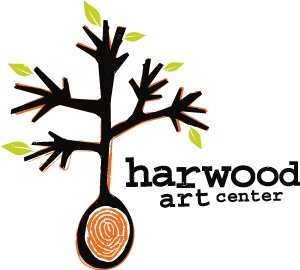Christine Glidden
What population on the planet holds the greatest potential to drive economic success and improve health outcomes? It is currently a population we limit and shame. It’s girls! We restrict their educations and chain them to early marriage. We shame them for having periods and shun them to goat sheds where they bleed alone. For her entire life, Christine Glidden has appreciated the intelligence, power, and grace that women add to the world. It’s a richness of spiritually, generosity and stealth that only women possess. When she came to realize the magnitude of what we do to girls in the world, she became angry. Angrier than she had been when, like many women, when she saw that her life had become littered with examples of gender inequality in schools, workplaces, and personal relationships.
Several years ago, Christine met a young woman who had lived in a Nepali refugee camp for seventeen years. Over the years, this woman told Christine about the murder, rape, poor sanitation and food quality, and general brutality of the camp. Christine listened and stood witness. The woman told Christine that she and other girls and women in the camp had no underwear or sanitary pads. This young woman sat in the corner on a rag every month in full view of family waiting out her period. She missed school every month. Although this woman was able to remain in school, many of her friends dropped out, immediately became marriage material, and had a baby every year thereafter. Some were only 13 or 14 years of age. This shocking, unconscionable condition fueled Christine’s anger and she knew she had to take action. She founded Women To Be.
After some research, she found templates and instructions to sew ‘kits’ of underwear and reusable, washable sanitary pads that last up to three years. A sewing group in Albuquerque fabricated 400 of these ‘kits’ which Christine took to the young woman’s refugee camp in Nepal. Through a translator, she also delivered a sex education class teaching girls and even grown women that there is a connection between periods and pregnancy. Then, she gave them a calendar to count their days.
Girls were given freedom and an opportunity to stay in school, delay marriage, and have fewer children. And were restored to the dignity they were born to. The following year, this volunteer group of seamstresses sewed 1000 kits for Christine to bring to Nepal and 500 kits for Guatemala.
Then, just this year, Christine made connection with the King of the Bemba People, a tribe of 6M tribal members in Zambia. She and Women To Be hosted the King and his delegation to visit New Mexico. She arranged for His Royal Highness to speak at UNM and CNM. He was met by Mayor Keller for a reception at the Albuquerque Museum of Art. Senators Udall and Heinrich and Congresswoman Lujan Grisham wrote statements praising the partnership of Women To Be and the King. Also during the visit, Christine introduced the King to the All Pueblo Council of Governors. Here, he and the governors of the 19 NM Pueblos discussed the status of women in tribal communities and eventually agreed to sign an historic proclamation declaring their support of women and girls and the health, happiness, and success in life regardless tribal name or location on the planet.
Christine was invited to spend the month of August to distribute 1000 kits to girls and women living in Bemba Land. His Royal Highness introduced Christine to the Ministers of Education and Commerce who are poised to purchase kits for distribution to needy women and girls throughout Zambia. They have become partners in establishing a sewing center in Bemba Land to train and employ women to sew the kits. When successful, Christine predicts that Women To Be will supply the 9M women and girls in Zambia in need of effective and free (or affordable) menstrual pads to get them off of the rags and out of the corners.
This partnership runs deep. Albuquerque is Sister Cities to Lusaka, the capital of Zambia, Santa Fe to Livingston, and Clovis to Kasama where the King resides. These cities are all interested in the project.
Next, Christine wants to develop a similar project in NM. She believes that there are many homeless women, victims of domestic violence, refugees, immigrants and native women who would benefit from these reusable products.
Anger when strategically focused is a great motivator to do good. She asks everyone to find theirs.
(Christine has a long history of public service including appointments to the NM Boards of Nursing and Medicine, the NM Arts Commission, the Board of Trustees at the Albuquerque Museum of Art, and the Urban Enhancement Trust Fund. Currently, she is Vice Chair for the Trustee Board of UNM Hospital, an Honorary Commander at Kirtland Air Force Base, and a Director to the Albuquerque BioPark Zoo.
